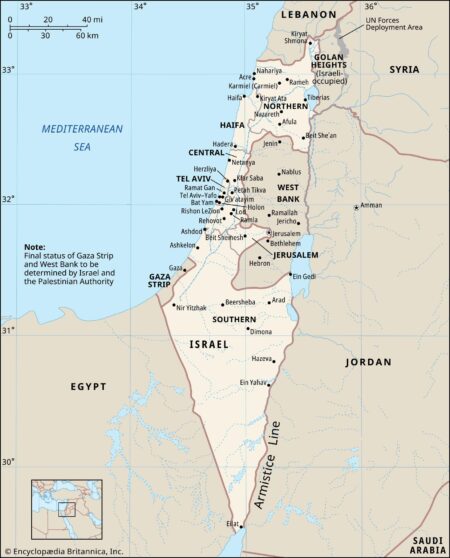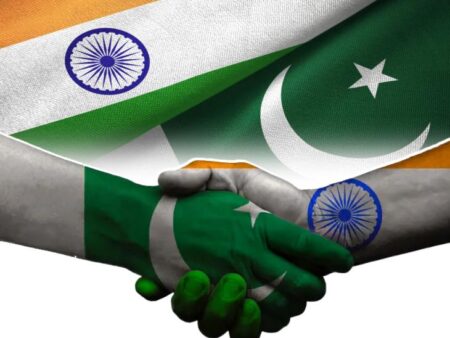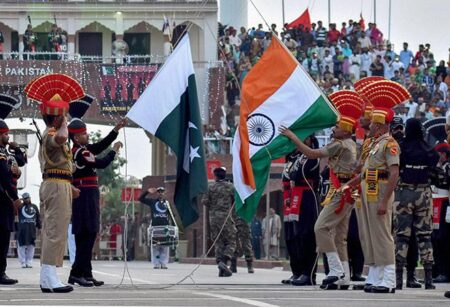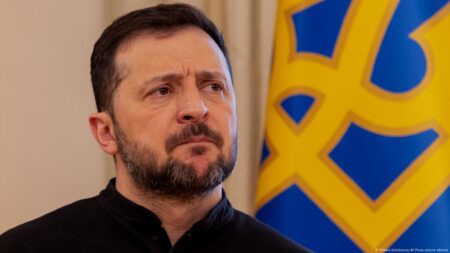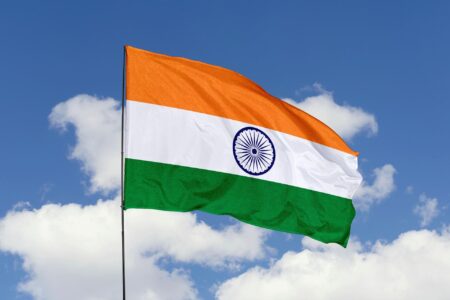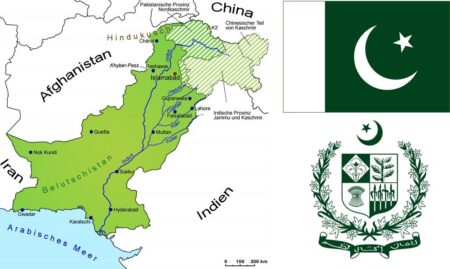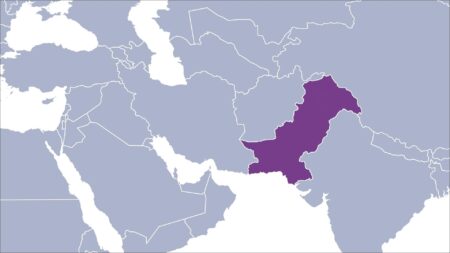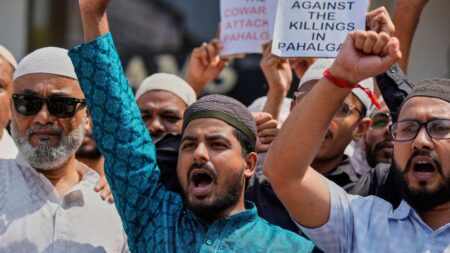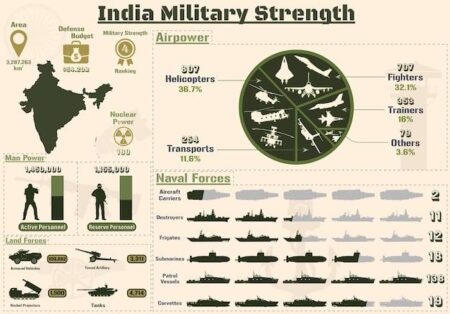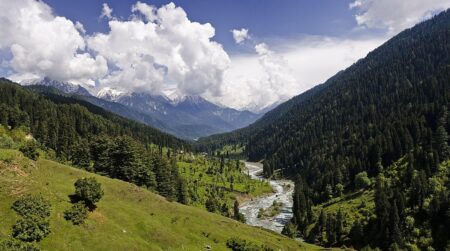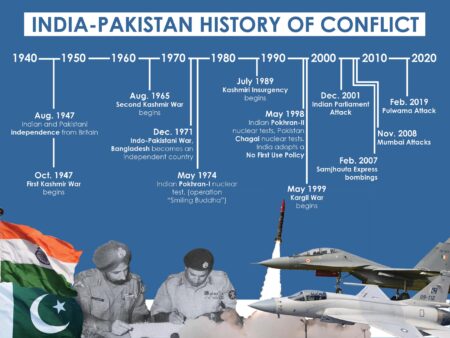Israel maintains a powerful military presence in Southern Lebanon, intensifying its watch over the volatile border as tensions with Hezbollah escalate. This strategic posture underscores the ongoing security challenges gripping the region, France 24 reports
Browsing: tensions
Sleepless in Kyiv: Ukraine’s capital endures relentless nighttime attacks by Russian forces. Amid blackout drills and piercing sirens, residents courageously navigate life under constant threat, showcasing extraordinary resilience and unshakable unity. (Reuters)
Germany is reportedly gearing up for potential conflict with Russia, aiming to achieve full readiness within the next four years. This bold move comes as tensions in Europe escalate, sparking serious concerns about regional security and the strength of military alliances
In a troubling turn of events, India and Pakistan have reignited their accusations of ceasefire violations along the Line of Control, despite a recent agreement intended to ease tensions. Each nation is pointing fingers at the other for breaching the terms, heightening worries about stability in this volatile region.
Pakistan has once again pledged its dedication to a ceasefire with India, highlighting a strong desire for lasting peace in the region. Yet, officials have issued a clear warning: any acts of aggression will be met with a swift and decisive response. They are calling for open dialogue as the key to ensuring stability and harmony.
Ukrainian President Volodymyr Zelenskyy has been actively engaging in crucial discussions with former President Donald Trump and key allies after the recent peace talks with Russia fell short, leaving no ceasefire in sight. This dialogue is essential as they strategize to counter the relentless aggression, all while navigating a landscape where diplomatic options are increasingly limited.
Pakistan is ramping up its military capabilities by integrating advanced Chinese weaponry, a move that has sparked significant concern in New Delhi. Analysts are keeping a vigilant eye on this development, as it has the potential to reshape regional power dynamics and heighten tensions between these two nuclear-armed nations.
In a bold statement, Indian Prime Minister Narendra Modi declared that India has only “paused” its military operations against Pakistan, underscoring the nation’s readiness for any potential escalation. This announcement sends ripples of concern about the future dynamics in the region.
In a remarkable turn of events, India and Pakistan have reached a historic agreement for a “full and immediate ceasefire,” signaling an end to the ongoing hostilities that have plagued the region. Former President Donald Trump lauded this pivotal development, highlighting the crucial need for lasting peace in this vital area of the world.
As Russia celebrates Victory Day with a dazzling display in Moscow, the atmosphere thickens with rising tensions between Moscow and Kyiv. The two cities exchange sharp accusations, highlighting the deepening conflict and the starkly different narratives that surround Russia’s military maneuvers in Ukraine.
The atmosphere between India and Pakistan has reached a boiling point, with both countries trading serious allegations of aerial assaults. As the situation grows increasingly precarious, military forces stand ready for any eventuality, heightening concerns of an impending conflict. Stay tuned for live updates as this story develops.
A recent video published by Newsweek captures a tense encounter between a Chinese naval vessel and a ship from a U.S. ally in international waters. The footage highlights rising maritime tensions in the region, prompting concerns over safety and diplomacy.
In a passionate response, the Pakistani Prime Minister has strongly condemned the recent Indian airstrikes that led to a tragic loss of life. He vowed to respond with unwavering resolve. As tensions between these neighboring nations continue to escalate, fears of an impending conflict loom large over the region.
The relationship between India and Pakistan is steeped in a rich tapestry of history, marked by conflict and rivalry. At the heart of this complex bond lie deep-seated territorial disputes and religious divides that have fueled animosity for decades. As both nations navigate the shifting landscape of global politics, the echoes of their tumultuous past resonate loudly, casting a long shadow over current tensions.
In a quaint Alaskan town, the air is thick with unease as tensions between Canada and the U.S. begin to strain decades of friendly relations. Local residents are voicing their worries about how these shifting political dynamics could impact trade, tourism, and the very fabric of their community ties.
In a significant show of strength, Pakistan has successfully test-fired a ballistic missile, heightening the already tense atmosphere with India. This pivotal moment highlights the persistent security challenges facing South Asia, as both countries grapple with an increasingly delicate geopolitical landscape.
Pakistan has raised alarms following intelligence reports suggesting that Indian military action could be on the horizon. This warning intensifies the already fraught relations between the two neighboring nations, sparking fears of a possible escalation in the region.
As tensions rise between India and Pakistan, analysts are pointing to a crucial turning point for India’s military strategy. With the threat of incursions on the horizon, all eyes are on operational readiness and robust deterrent measures in response to the increasing regional instability.
Amid the persistent tensions surrounding Kashmir, experts believe that a full-scale war between India and Pakistan is improbable. The diplomatic channels are still active, and both countries are grappling with considerable internal and external challenges, which makes the prospect of conflict less likely.
As tensions soar between India and Pakistan in the wake of the recent Pahalgam attack, former Army Chief Gen. (Retd.) Deepak Kapoor has weighed in, suggesting that China is unlikely to step into the fray. His insights shed light on the intricate geopolitical landscape that defines this volatile region.

